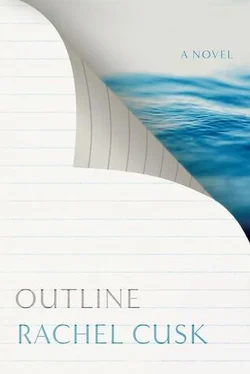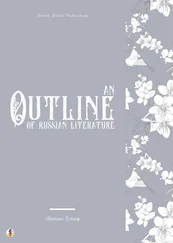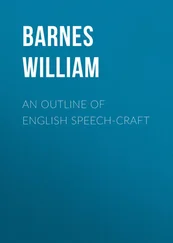It remained, therefore, within his grasp, this weapon of which she had been so quick to disarm every other man: the power to hurt her. At a party recently, where she had taken Konstantin and introduced him to many of her friends, she had been enjoying the feeling of showing him off to her social circle, seeing his handsomeness and his wit and his integrity through their eyes — and vice versa, because this was a house of artists and other interesting people from her world — and she had started to eavesdrop a little on his conversation with a woman she knew but didn’t like very much, a woman called Yanna. It was partly out of spite towards Yanna that she had given into the temptation to eavesdrop: she wanted to hear Konstantin speak, and to imagine Yanna’s jealousy at the intelligence and good looks of Elena’s boyfriend. Yanna was asking about Konstantin’s children, of which he has two from a previous marriage, and then, quite casually, while Elena was listening, Yanna asked him whether he’d like to have any more children. No, he said, while Elena, listening, felt as though knives were being plunged into her from all sides; no, he didn’t think he wanted any more children, he was happy with things as they were.
She raised her glass to her lips, her hand trembling.
‘We had never,’ she continued quietly, ‘discussed the question of children, but it is obvious that for me it remains open, that I may very well want to have children. Suddenly this party I was enjoying, where I had felt so happy, became a torture. I was unable to laugh or smile or speak to anyone properly; I just wanted to go away and be alone, but I had to stay there with him until it was over. And of course he had noticed that I was upset, and kept asking me what was wrong; and for the whole of the rest of that evening and night he kept asking me to tell him what was wrong. In the morning he was due to go away on business for a few days. I had to tell him, he said. It was impossible for him to go to the airport and get on a plane with me in this upset state. But of course it would have been so humiliating to tell him, because I had overheard something not meant for my ears, and also because of the subject itself, which ought to have been approached so differently.
‘It seemed to me that this was a situation it was impossible to get out of, while still thinking as well of one another as we had before. I had this feeling,’ she continued, ‘which I have had since and which gets worse each time we argue, that we were caught in a net of words, tangled up in all these strings and knots, and that each of us thought there was something we could say that would set us free, but the more words we spoke the more tangles and knots there were. I find myself thinking of the simplicity of the time before we had said one syllable to one another: that is the time I would like to go back to,’ she said, ‘the time just before we first opened our mouths to speak.’
I looked at the couple at the table next to ours, a man and a woman who had eaten their meal in a more or less unbroken silence. She had kept her handbag on the table in front of her plate, as though she was worried it might be stolen. It sat there between them and both of them glanced at it occasionally.
‘But did you tell Konstantin that you had heard him?’ Melete said. ‘That morning, while you were waiting for the taxi, did you admit it?’
‘Yes,’ Elena said. ‘He was embarrassed, of course, and said it had been a thoughtless comment, that it didn’t mean anything, and in a way I believed him and it was a relief, but in my heart I thought — why bother to speak at all? Why say anything, if you can just take it back the next minute? Yet of course I wanted it to be taken back. And even thinking about it now the whole thing seems slightly unreal, as though by allowing it to be taken back I can no longer be sure that it actually happened. Anyway,’ she continued, ‘the taxi came and he got in it and left, both of us friends again, but afterwards I had the feeling of a stain, something small but permanent, like a little stain that ruins the whole dress — I imagined all the years passing, and us having children, and me never being able to forget the way he had shaken his head and said no when someone had asked him whether he wanted them. And him perhaps remembering that I was a person capable of invading his privacy and judging him on what I had found. This idea made me want to run away from him, from our apartment and the life we have together, to hide myself somewhere, in something unspoiled.’
There was a silence, into which the noise from the surrounding tables steadily flowed. We drank the soft, dark wine, so soft it could barely be felt on the tongue.
‘Last night I had a dream,’ Melete said presently, ‘in which I and several other women, some of whom were friends of mine and some of whom were strangers, were trying to get into the opera. But all of us were bleeding, pouring out menstrual blood: it was a kind of pandemonium, there at the entrance to the opera house. There was blood on our dresses, dripping down into our shoes; every time one woman stopped bleeding another started, and the women were placing their bloodied towels in a neat pile by the door to the building, a pile that got bigger and bigger and that other people had to pass to get in. They looked at us as they passed, men in their dinner jackets and bow ties, in absolute disgust. The opera began; we could hear the music coming from inside, but we couldn’t seem to get ourselves across the threshold. I felt a great anxiety’, Melete said, ‘that all of this was somehow my fault, because I was the one who had first noticed the blood, noticed it on my own clothes, and in my tremendous shame I seemed to have created this much bigger problem. And it strikes me’, she said to Elena, ‘that your story about Konstantin is really a story about disgust, the disgust that exists indelibly between men and women and that you are always trying to purge with what you call frankness. As soon as you cease to be frank, you see a stain, you are forced to acknowledge imperfection, and you want only to run away and hide in shame.’
Elena nodded her golden head, and put her hand across the table to touch Melete’s fingers.
When she was a child, Melete continued, she used to suffer from the most terrible attacks of vomiting. It was a quite debilitating condition that persisted for several years. The attacks always occurred at exactly the same time of day and under exactly the same circumstances, the hour when she would return from school to the house she shared with her mother and stepfather. Understandably enough, her mother was very distressed by Melete’s suffering, which had no apparent cause and therefore seemed to be nothing less than a criticism of her own way of life and the man she had introduced into the household, a man her only child refused — as though by a point of principle — to love or even to recognise. Every day at school, Melete would forget about the vomiting, but then as it became time to go home she would feel the first signs of its approach, a feeling of weightlessness, almost as though the ground were giving way under her feet. She would hurry back to the house in a state of anxiety, and there, usually in the kitchen, where her mother was waiting to give her her afternoon snack, an extraordinary nausea would start to grow. She would be taken to the sofa to lie down; a blanket would be put over her, the television switched on, and a bowl left by her side; and while Melete retched, her mother and stepfather would spend their evening together in the kitchen, talking and eating dinner. Her mother had taken her to doctors, therapists, and finally a child psychoanalyst, who suggested — much to the mystification of the adults who were paying his bill — that Melete take up a musical instrument. He asked her whether there was any instrument in particular she had ever thought of playing, and she said, the trumpet. And so, reluctantly, her mother and stepfather had bought her a trumpet. Now, every day after school, instead of the consuming prospect of the vomiting, she had before her the prospect of blowing through the brass instrument to produce its great rude noise. In this way she had made manifest her disgust in flawed humanity, and also managed to interrupt those tête-à-têtes over supper in the kitchen, which could never again be conducted in quite the same way, without her as their victim.
Читать дальше












